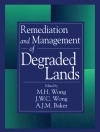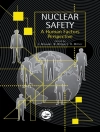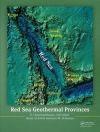Coastal zones exemplify the environmental pressures we face: their beauty attracts settlement, they offer potential for diverse economic activities, and they are sensitive natural habitats for important species, as well as providing a range of ecosystem services. They are also extremely vulnerable to the vicissitudes of climate change, which include rising sea levels and changes in extreme events such as storms. With large populations living in coastal and estuarine cities facing the ongoing threat of inundation, coordinated management is essential, especially as coastal zones form a linked system in which piecemeal, uncoordinated management could be counterproductive.
Table des matières
Contents.- 1. The Challenge for Coastal Management During the Third Millennium.- 2. Climate Downscaling: Local Mean Sea-Level, Surge and Wave Modelling.- 3. Broad-Scale Hydrodynamic Simulation, Wave Transformation and Sediment Pathways.- 4. Land Use Dynamics and Coastal Management.- 5. Evaluating Broad-Scale Morphological Change in the Coastal Zone Using a Logic Based Behavioural Systems Approach.- 6. Coastal Wetland Habitats: Future Challenges and Potential Solutions.- 7. Simulating the Shore and Cliffs of North Norfolk.- 8. Broad Scale Coastal Inundation Modeling.- 9. Broad Scale Flood and Erosion Risk Analysis.- 10. Visualising Potential Coastal Change: Communicating Results Using Visualisation Techniques.- 11. The Coastal Simulator Interface: Integration and Application.- 12. Many Stakeholders, Multiple Perspectives: Long-Term Planning for a Future Coast.- 13. Living With Uncertainty: Difficult Choices for Coastal Management in the UK During the Third Millennium.- 14. Generic Lessons for Coastal Management in the Third Millennium.- Index.
A propos de l’auteur
Robert Nicholls has studied coastal processes and coastal hazards for the last 25 years. In particular, he has an international reputation concerning climate change in coastal areas, especially the potential impacts and the possible responses. His research has involved studies across a range of scales from local (e.g., small towns) to the global. A distinctive dimension has been consideration of the coastal zone as a series of interacting systems which facilitates policy analysis. He has advised national governments (e.g., UK, Netherlands, Singapore, the Maldives) and intergovernmental organisations (e.g., OECD) on climate change and coastal issues, including as a lead author to five reports of the Intergovernmental Panel for Climate Change assessment process. Currently, he is contributing to a series of research projects, including being Principal Investigator as follows:
i COASST – a NERC-funded consortium project on predicting
decadal coastal morphological evolution
ESPA Deltas – an ESPA (DFID/NERC/ESRC-funded) project which is examining the future of ecosystem services and human well-being in coastal Bangladesh;
DECCMA – a CARRIA (IDRC/DFID-funded) project which is examining adaptation to climate change in the three contrasting deltas of the Volta, Mahanadi and Ganges-Brahmaputra Deltas, with a main focus on migration.
He was awarded the Roger Revelle Medal by the Intergovernmental Oceanographic Commission in 2008. This recognises ‘outstanding contributions to the ocean sciences by inspired researchers who communicate their knowledge and global vision of the challenges facing our Planet in order to shape a better future for humankind’.See Web page: http://www.southampton.ac.uk/engineering/about/staff/rjn.page












